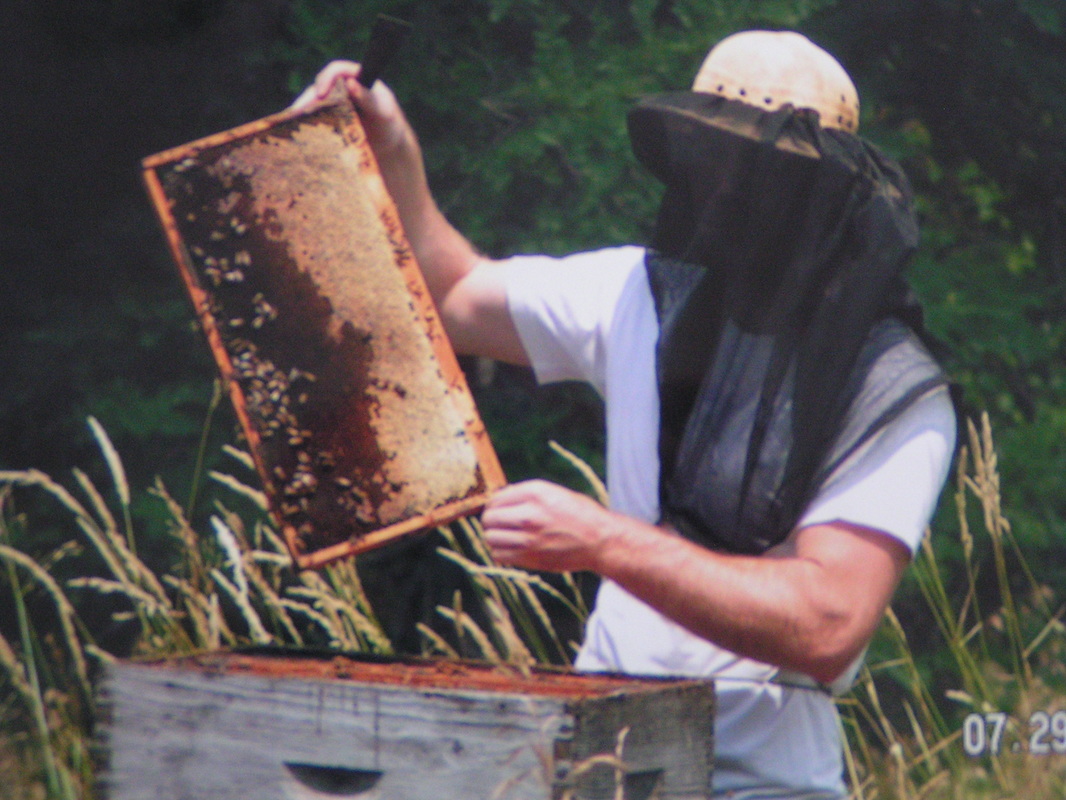'It doesn't take a wizard to determine whether there are bad things in the honey we handle, nor a hero to do what it takes to keep it from our food supply,' said Mark Brady, a Texas beekeeper who sits on the National Honey Board.
'If we buy Chinese honey, as we do far too often, we know it may contain chloramphenicol or some other antibiotic that is illegal in any food product,' said Brady, who produces about a million pounds of honey a year. 'To find it and not report it is criminal.'
Two-thirds of the honey Americans consume is imported and almost half of that, regardless of what's on the label, comes from China, the Seattle P-I reported last month.
The newspaper's five-month investigation into honey laundering -- the intentional mislabeling of the country of origin -- found that tons of Chinese honey coming into the U.S. is tainted with banned antibiotics.
But when the contamination is discovered by the industry through internal testing, insiders say, federal health or customs officials are almost never notified, and the honey ends up being dumped back on the market.
That practice is wrong, said Kenneth Haff, the newly elected president of American Honey Producers.
'We don't want to risk this tainted honey ever getting packed and distributed for human consumption,' said Haff, who believes the industry could solve the problem if companies simply alert the Food and Drug Administration each time they discover a tainted shipment.
Instead, some major packers simply return bad honey to the importer, naively trusting them to destroy the shipment and not seek another buyer.
Said Haff: 'We run the risk of the importer trying to resell this same adulterated honey for a cheaper price somewhere else.'
Medical experts agree that the presence of contaminants in honey is a health concern. A small number of people can be sickened or killed by eating even trace amounts of the banned antibiotics, the FDA says in its import alerts on the Chinese honey.
One of them could be Heidi Witherspoon of Seattle, who suffers from a hypersensitivity to quinolones, a class of 'flox' antibiotics found in some honey.
'Even the littlest amount sends me into horrible pain, insomnia and twitching,' she said in an e-mail.
John Fratti, a former pharmacy representative from Hummelstown, Pa., also has severe sensitivity to the drugs Chinese beekeepers were using.
'Allowing even the slightest chance that these antibiotics and other drugs can end up in honey on our store shelves is criminal,' Fratti said. 'You can't begin to imagine the pain and harm that can come to us sensitive to those drugs.'
'It is in the interest of the honey industry to assure that adulterated honey doesn't get into the marketplace to compete with the legitimate products made by honest producers,' said Martin Stutsman, who heads most of FDA's efforts at policing adulterated food.
'We encourage industry, upon discovering that a food is adulterated, to let the local FDA office know about the particulars,' he said. 'That benefits the honest industry generally and also helps FDA in its enforcement activities to protect the public.'
But blowing the whistle on bad honey at the local level can be difficult.
Eric Olson is one of several Washington state beekeepers who say they're concerned that slipshod practices by some of the state's honey packers can endanger everyone's ability to sell honey.
'There are worrisome things happening all the time,' said Olson, who runs an apiary in Yakima.
'Truck drivers tell us about bringing full semi loads of foreign honey across the border to packers in our state and Oregon. That honey didn't come from Canadian bees, but it's sold with a label saying 'from U.S. and Canadian honey.' '
Some beekeepers have reported such practices to state and federal agencies, but 'nothing is done,' Olson said.
'We've screamed our heads off for so long, so that's kind of a dead subject. We just gave up.'"
Honey Laundering: Tainted product still slips easily into U.S. Officials are rarely notified
By ANDREW SCHNEIDER, P-I SENIOR CORRESPONDENT

 RSS Feed
RSS Feed
